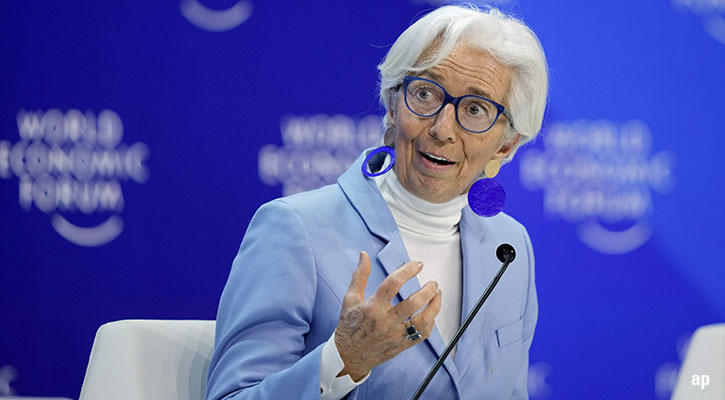August has been a breath of fresh air compared with the summer turmoil of the last few years. There were no debt-ceiling debates or enormous market sell-offs, but there was reduced volume and volatility. Such low volumes, however, have translated into robust stock market returns, with the EURO STOXX 50 index, which measures the market performance of Europe’s 50 largest companies, rose 4.9% over the month of August. The second half of the month saw performances and volumes creep lower as investors took a well-earned break.
The market's permission slip to take this break was signed by European Central Bank head Mario Draghi earlier in the month. His comments that he is ready to do whatever it takes to save the euro and that the common currency is irreversible were seen as the clearest sign yet that the ECB was ready to peruse more unconventional means to stem the crisis. Add in some news reports that Germany's chancellor Angela Merkel was ready to be more accommodative and concede some ground in order to help ease negations with debtor nations, and the tension level seemed to have dropped dramatically.
Certainly these are all-important steps in the right direction, but the underlying problems are still very much with us. As the global holiday wraps up, economic leaders will need to translate a number of issues from talk to action fairly quickly in order to keep markets relatively placid and set the stage for ending the crisis.
ECB Must Follow Through
First up, the ECB needs to put more concrete policies to Draghi's words of support. Right now we just don't know exactly what the central bank is willing to do to keep rates on peripheral country bonds low and keep the euro together. Will the central bank start buying massive quantities of sovereign debt to keep those key rates low? Is there an upward bound on how high yields can go? Will there be strings attached to the purchases?
We should hear more from Draghi soon and details of the plan will be crucial. If the bank is able to act quickly to bring down the still very elevated yields on Spanish and other bonds, it will go a long way to credibly setting a sovereign debt yield ceiling. However, if the details of his plan are more vague than expected, investors could quickly start to lose patience and doubt the ECB's resolve. Draghi has been saying the right things to keep the euro together, but the proof here is really in the pudding.
Banks Need Help
Many European banks remain on the edge. Institutions remain undercapitalised while deposits are fleeing banks in weak countries as customers fear bank failures or redenomination. There is little doubt that a number of banks are going to need fresh cash infusions, but where the money will come from remains in question. Forcing countries like Spain to borrow more to shore up their banks is a counterproductive solution as it exacerbates an already-hefty debt load.
One of the most talked about long-term solutions to this conundrum is to create a single banking supervisor for Europe, the so-called banking union. This could very well provide a comprehensive solution to Europe's banking woes. Having set rules for bailouts and the clear legal authority to administer them certainly beats the infighting and uncertainty that comes with negotiating bailout terms one deal at a time. Mutualising responsibility for banks across Europe would eliminate one of the most potent crisis-contagion pathways and is a clear step towards the establishment of a lasting fiscal union that can prevent a crisis like this from happening again.
Creating this union will almost certainly prove to be maddeningly complex. There are scores of institutions that have a stake, and it will take years for the union to take on a final form. But many banks need the bailout money now. In the short term, leaders need to create a plan that allows money to flow directly from bailout funds into banks now. They would then need to set up a credible road map for the creation of the single supervisor. They are working on it, but getting the details of this right will be a key sign that Europe is finally ready to fix what is broken and to stop kicking the can down the road.
Don't Ignore Greece
Spain is dominating the headlines, but that doesn't mean that it is now possible to neglect the problems in Greece. The current bailout programme for the embattled country is not sustainable. The country seems unlikely to hit the benchmarks for cutting spending, raising revenues and making other reforms. And if bailout funds are pulled, Spain will almost certainly be forced out of the common currency and plunged into an even deeper recession. What impact a Greek exit would have on the broader eurozone is an open question, but given that many of the potentially stabilising institutions don't exist yet, it seems safe to say the continent isn't going to emerge smelling like roses.
The European Union, International Monetary Fund and ECB will need to stop the fiction that the current agreement has any chance of succeeding and renegotiate terms. It's not a pleasant task, but if they are serious about not allowing the eurozone to break up, it is one that must be done sooner rather than later. This likely means another debt restructuring and allowing the Greek government more time to implement reforms.
Europe has a lot of work to do as summer turns to autumn. The good news is that the key players are finally talking about solutions that will actually solve something. Watching the willingness and success of leaders taking this talk and translating it into action will provide an important window into whether the crisis can finally be contained, or if we are still on the edge.



























